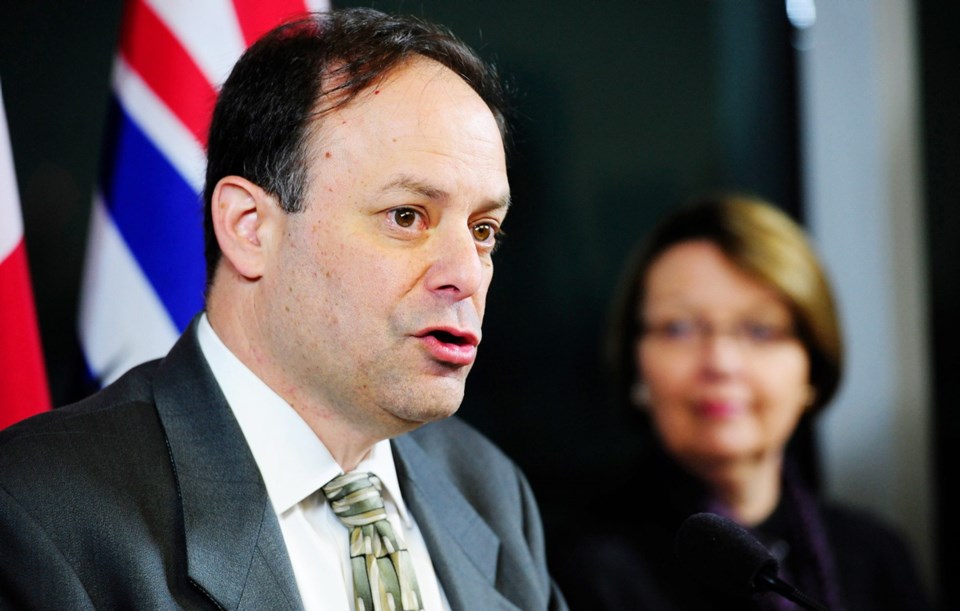The head of British Columbia’s civilian police watchdog is blaming a culture clash, not leadership problems, for a high turnover rate at the agency.
A third of employees of the Independent Investigations Office have either been fired or resigned, and several employee surveys cited major leadership issues.
But Richard Rosenthal, the civilian director of the Independent Investigations Office, said the problem is “cultural conflicts [that] occur when a large number of new staff with diverse backgrounds enter an organization.”
On Thursday, Rosenthal faced questions from MLAs who are part of the parliamentary committee set up to review the organization and assess the progress in having it staffed fully by civilians by 2017.
That goal has been hampered by high turnover rates, which has resulted in constant training of new investigators.
Since the office was set up in 2012 to investigate police-involved deaths or serious injuries, a total of 15 employees have left. According to Rosenthal, one former police officer was fired from the organization in 2012. In 2013, three civilians resigned. This year, 11 employees have left — four former police officers were fired while five former officers and two civilians resigned.
Rosenthal justified the firings, saying “such actions were necessary to ensure that the organization is aligned from top to bottom with respect to our mission, vision and values and our expectations for independent and thorough investigations.”
Rosenthal has hired nine civilians to replace those who have left with two more positions waiting to be filled.
The IIO conducted three employee surveys over four months in 2013, all of which found significant morale issues and leadership problems. A survey by organizational development staff in the Justice Ministry “highlighted significant criticism of the leadership and management of the organization.” A subsequent survey by B.C.’s Justice Institute, which included in-person interviews with staff, also found “a lack of confidence in senior leadership.”
Despite Rosenthal’s being assigned an executive coach to deal with his brash leadership style, the director didn’t take any responsibility for the organization’s morale issues when addressing the committee Thursday.
Instead, he said the problem stemmed from “a group of disaffected staff who expressed their inclination not to accept the leadership from someone who had any number of characteristics which were not relevant to the performance or the fitness to do the job. So, there were people in the organization who simply said: ‘I wouldn’t have picked this person to be in a leadership or managerial capacity, and I’m not going to listen to them. I’m going to resist whatever instruction we get from them.’ ”
Rosenthal said there were some former police investigators who didn’t believe civilians could be competent in investigating police-related critical incidents. He said those who took this position were either told to change their attitude or were “managed out of the organization.”
But despite what Rosenthal characterized as a culture clash between former police officers and civilians, he told the committee he would like to see a relaxing of the rule that the office cannot hire anyone who has policed in B.C. in the last five years, saying it rules out qualified candidates.
NDP MLA Kathy Corrigan cautioned against that, saying relaxing the five-year rule could set back the goal of having the office fully staffed by civilian investigators.
Corrigan also asked Rosenthal: “Given that you were the one that hired all these people in the first place, why should we trust you that things are going to work better now?”
Rosenthal replied: “We’re now maturing and we have the ability to do better.”
The office was recently the subject of two external reviews, both of which were submitted to the Justice Ministry in late October.
A report by Vancouver lawyer Mark Jette looked into the IIO’s investigation of the RCMP shooting of Canadian Forces veteran Gregory Matters near Prince George.
While Jette concluded there was no evidence the investigative process by IIO lacked integrity, he did find that the investigation was damaged by Rosenthal’s decision to send two investigators to the Prince George incident, even though neither was eligible to be an investigator under the Police Act.
The other was a labour review prompted by formal complaints by two former employees against Rosenthal. That report has not been made public.



